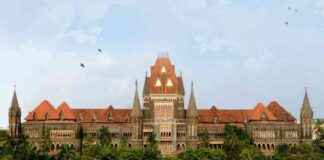The Bombay High Court has overturned a special Central Bureau of Investigation (CBI) court order that would have allowed Indrani Mukerjea, a key accused in the Sheena Bora murder case, to travel to Spain and the United Kingdom for ten days. This decision comes as Mukerjea stands trial alongside her two ex-husbands, Peter Mukerjea and Sanjeev Khanna, for the alleged murder of her daughter Sheena Bora.
Justice Shyam C Chandak issued the ruling in response to a petition filed by the CBI challenging the special court’s decision. The agency argued that Mukerjea, being a British national, might not return to India to face trial if allowed to leave the country. This reversal underscores the seriousness of the charges against Mukerjea and the need for her presence during the trial proceedings.
### Previous Travel Request and Court Rulings
In her original application, Mukerjea had requested permission to travel to England and Spain, citing her British nationality and the need to update her will and bank account in Spain. The special court had initially granted her permission to travel abroad for ten days within the next three months, subject to certain conditions. However, the CBI’s challenge to this decision led to the High Court’s recent ruling overturning the travel approval.
This was not the first time Mukerjea had sought permission to travel abroad. A previous application had been filed, but her passport was damaged while in the court’s custody, preventing her from leaving the country. These repeated attempts to secure travel permissions highlight the complexities and legal challenges faced by those involved in high-profile criminal cases like the Sheena Bora murder trial.
### Allegations and Motives in the Sheena Bora Case
Mukerjea, along with her ex-husband Sanjeev Khanna and driver Shyamwar Rai, stands accused of abducting and murdering her daughter Sheena Bora in April 2012. Prosecutors allege that Mukerjea orchestrated the murder due to her disapproval of Sheena’s relationship with Rahul Mukerjea, the son of her ex-husband Peter Mukerjea, who is also implicated in the case. The motive for the crime, as per the CBI, was rooted in personal animosity and familial conflicts within the Mukerjea household.
The details of the case have gripped the public’s attention, shedding light on the complexities of relationships and power dynamics within affluent families. The murder of Sheena Bora has been portrayed as a tragic consequence of a web of deceit and betrayal, with each new revelation adding layers of intrigue to the ongoing trial.
### Legal Implications and International Travel
The High Court’s decision to reverse Mukerjea’s travel approval underscores the legal complexities involved in allowing accused individuals to leave the country during ongoing criminal trials. The concerns raised by the CBI regarding Mukerjea’s potential flight risk highlight the need for stringent measures to ensure that justice is served and that accused individuals do not evade trial by absconding.
The international dimension of Mukerjea’s travel request, involving both the United Kingdom and Spain, adds a layer of complexity to the legal proceedings. The need to update her will and bank account in Spain raises questions about the extent of her international assets and connections, further complicating the investigation and trial process.
### Conclusion
In conclusion, the Bombay High Court’s decision to reverse Indrani Mukerjea’s travel approval serves as a reminder of the legal challenges faced in high-profile criminal cases like the Sheena Bora murder trial. The allegations against Mukerjea and her co-accused have brought to light the complexities of familial relationships and personal motives that can lead to tragic consequences. As the trial continues, it remains to be seen how the legal proceedings will unfold and what further revelations will come to light in this gripping saga of crime and betrayal.




















